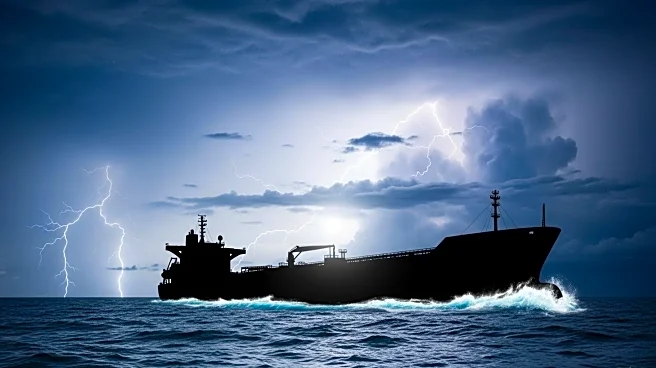What is the story about?
What's Happening?
There is a growing concern over the quality of marine fuels, particularly very low sulfur fuel oil (VLSFO), used by vessels to meet emission standards. Reports indicate that a significant portion of VLSFO does not meet ISO standards due to issues like excessive sediment and poor blending. These impurities can cause wear and failures in fuel systems, leading to unplanned stoppages. The problem is especially prevalent in Europe, with high levels of off-spec fuel reported in major bunkering hubs. Effective monitoring and testing are crucial to ensure fuel quality and protect vessel operations.
Why It's Important?
The quality of marine fuels is critical for the safe and efficient operation of ships. Off-spec fuels can lead to increased maintenance costs, operational disruptions, and environmental compliance issues. As shipping companies transition to VLSFO to meet emission regulations, ensuring fuel quality becomes paramount to avoid costly repairs and potential safety hazards. The situation highlights the need for stringent quality control measures and monitoring systems to safeguard maritime operations and maintain reliability.
What's Next?
Ship operators and charterers must prioritize fuel quality monitoring to prevent machinery damage and operational failures. On-site testing capabilities can help crews assess fuel quality before use, reducing the risk of impurities entering engines. The industry may see increased investment in monitoring technologies and collaboration with fuel suppliers to improve quality standards. Regulatory bodies could also consider implementing stricter guidelines to address the persistent issues with VLSFO.















